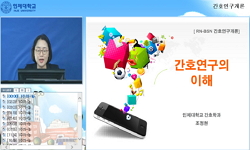Drawing a sample can be costly or time consuming in some studies. However, it may be possible to rank the sampling units according to some baseline auxiliary covariates, which are easily obtainable, and/or cost efficient. Ranked set sampling (RSS) is ...
http://chineseinput.net/에서 pinyin(병음)방식으로 중국어를 변환할 수 있습니다.
변환된 중국어를 복사하여 사용하시면 됩니다.
- 中文 을 입력하시려면 zhongwen을 입력하시고 space를누르시면됩니다.
- 北京 을 입력하시려면 beijing을 입력하시고 space를 누르시면 됩니다.


Using ranked auxiliary covariate as a more efficient sampling design for ANCOVA model: analysis of a psychological intervention to buttress resilience
한글로보기https://www.riss.kr/link?id=A103606792
- 저자
- 발행기관
- 학술지명
- 권호사항
-
발행연도
2017
-
작성언어
English
- 주제어
-
등재정보
KCI등재후보,SCOPUS,ESCI
-
자료형태
학술저널
- 발행기관 URL
-
수록면
241-254(14쪽)
- DOI식별코드
- 제공처
- 소장기관
-
0
상세조회 -
0
다운로드
부가정보
다국어 초록 (Multilingual Abstract)
Drawing a sample can be costly or time consuming in some studies. However, it may be possible to rank the sampling units according to some baseline auxiliary covariates, which are easily obtainable, and/or cost efficient. Ranked set sampling (RSS) is a method to achieve this goal. In this paper, we propose a modified approach of the RSS method to allocate units into an experimental study that compares L groups. Computer simulation estimates the empirical nominal values and the empirical power values for the test procedure of comparing L different groups using modified RSS based on the regression approach in analysis of covariance (ANCOVA) models. A comparison to simple random sampling (SRS) is made to demonstrate efficiency. The results indicate that the required sample sizes for a given precision are smaller under RSS than under SRS. The modified RSS protocol was applied to an experimental study. The experimental study was designed to obtain a better understanding of the pathways by which positive experiences (i.e., goal completion) contribute to higher levels of happiness, well-being, and life satisfaction. The use of the RSS method resulted in a cost reduction associated with smaller sample size without losing the precision of the analysis.
동일학술지(권/호) 다른 논문
-
- The Korean Statistical Society
- Sharma, Vikas Kumar
- 2017
- KCI등재후보,SCOPUS,ESCI
-
Consideration of a structural-change point in the chain-ladder method
- The Korean Statistical Society
- Kwon, Hyuk Sung
- 2017
- KCI등재후보,SCOPUS,ESCI
-
Inverted exponentiated Weibull distribution with applications to lifetime data
- The Korean Statistical Society
- Lee, Seunghyung
- 2017
- KCI등재후보,SCOPUS,ESCI
-
Multivariate analysis of longitudinal surveys for population median
- The Korean Statistical Society
- Priyanka, Kumari
- 2017
- KCI등재후보,SCOPUS,ESCI




 ScienceON
ScienceON DBpia
DBpia





